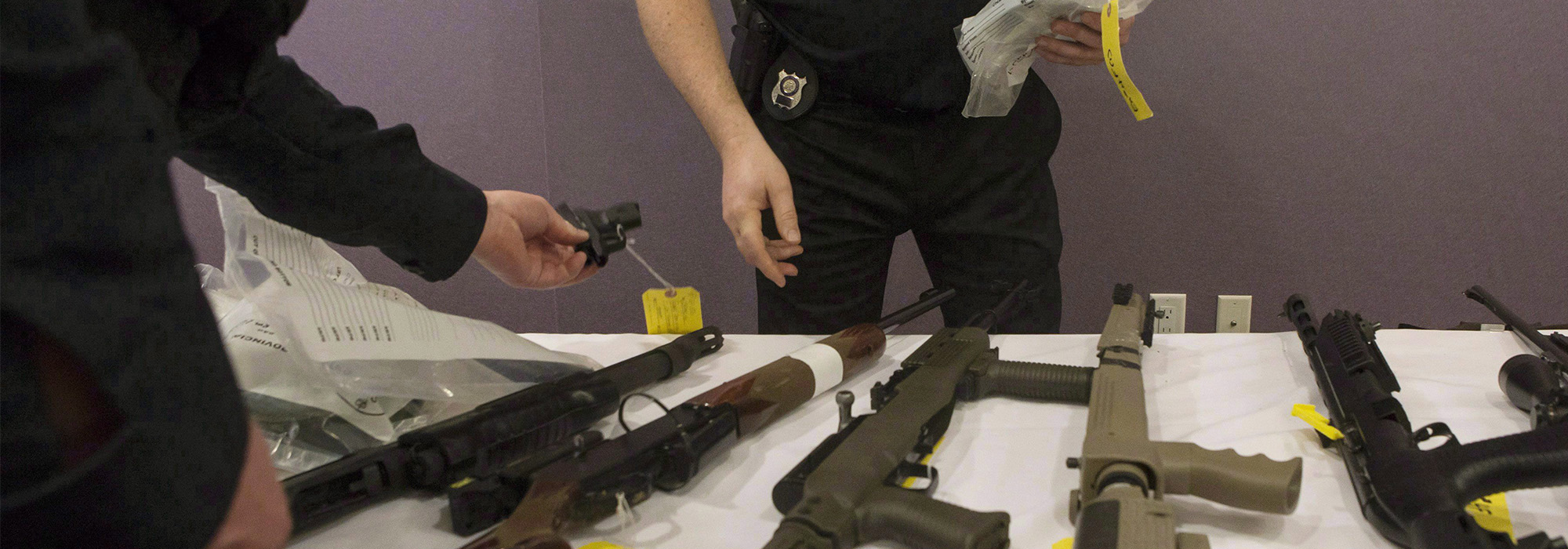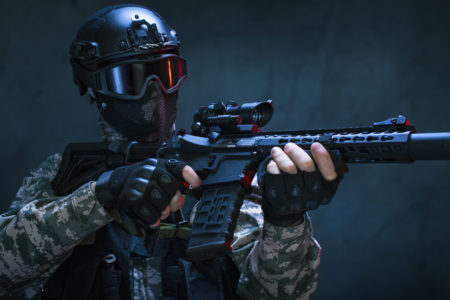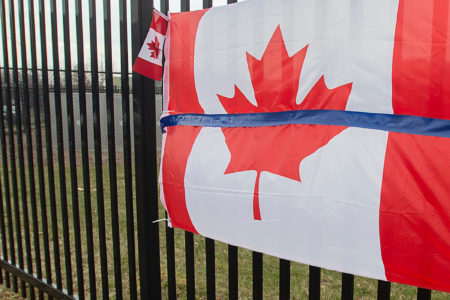
The recent mass shooting in Parkland, Florida, is the latest grim reminder of the costs of gun violence. Student marches and protests are being conducted in the United States against an entrenched gun culture. But even in Canada, where we take pride in differentiating ourselves from our southern neighbour, and where there is broad support for gun control measures, our recent record on gun control is decidedly mixed.
Bill C-19, passed in 2012 under the previous Conservative government of Stephen Harper, ended the registration of rifles and shotguns and destroyed the data on more than 5 million rifles and shotguns or unrestricted firearms. It also eliminated a requirement to keep records on the sales of unrestricted firearms, eliminating measures that had been in place since 1977. The result is that today a licensed gun owner can purchase dozens of unrestricted firearms and no record is kept of purchased guns.
Bill C-42, passed in June 2015, further eroded controls on restricted weapons – including handguns and semi-automatic assault weapons. It moved the decision-making about the classification of these weapons away from the RCMP to the office of the Public Safety Minister where it runs the risk of being subjected to political interference.
Neither the Liberal Party nor the New Democratic Party focused on gun control in the 2015 election. Their platforms clearly suggested they did not want to reopen the debate, with safe language meant to convey concern but little in the way of proposals that would have meaningful impact on gun control.
The Parkland shootings bring this all into focus again. What types of changes to gun laws would the Canadian public support and accept? A national online survey of 1,138 Canadian adults conducted by Hill+Knowlton Strategies (H+K) between February 9 and February 14 (the survey wrapped up on the day of the Parkland shooting) suggests that Canadians who support the Liberal and New Democratic Parties very strongly believe that more action is needed to improve gun control and that there remains significant support to bring forward measures dismantled under the Harper government — and then some.
Before examining Canadians’ views on gun control, it’s useful to understand their perceptions around gun violence, including its causes.
Four in 10 Canadians say they are very concerned about gun violence in their community (figure 1). Concern is highest in Quebec (48 percent) and lowest in Alberta (27 percent). It is also significantly higher in urban communities (41 percent) compared with rural parts of Canada (28 percent).
In relative terms, Canadians’ level of concern about gun violence is lower than it is for the traditional top-echelon issues of health care, affordable housing, unemployment, education and crime (figure 2).
Gun violence manifests itself in several ways, from suicides to mass shootings. Among those who expressed concern about gun violence in their community, we find that “gang violence with guns” and “mass shootings” are driving most of the worry (figure 3). We also note that worry about mass shootings is much more prevalent in Quebec (45 percent), whereas worry about gang violence with guns is stronger in Saskatchewan and Manitoba (61 percent) and BC (50 percent).
As figure 4 shows, there are more Canadians who think that the country’s regulations around licensing and access to firearms are not strict enough (47 percent) than there are who say the current regime is either about right (31 percent) or too restrictive (8 percent).
Gun control has always been contentious. Cleavages persist, but perhaps the divisions are narrower than in the past. For example, there are not as many age- and gender-based differences in these results as there have been in past surveys: we find that men (45 percent) are as likely as women (49 percent) to view current gun laws as not strict enough. Consistency of views on this key issue is also found across age groups.
The largest differences are related to political party support. The perception that Canada’s gun laws are not strict enough is highest among Liberal Party and New Democratic Party supporters (50 percent and 58 percent respectively), and lowest among Conservative Party supporters, at 34 percent.
In addition to looking at broad perceptions of current gun laws, our survey measured public reaction to five potential approaches to tightening the country’s gun laws (figure 5). Overall, support for the measures is strong and cuts across many traditional fault lines:
- There is a high level of support (88 percent) for “stricter licensing requirements and background checks to prevent people with a history of violence or mental illness from getting access to firearms.”
- There is strong majority support (83 percent) for “banning personal possession of military assault weapons and sniper rifles by civilians.”
- The vast majority of Canadians (83 percent) also support “implementing international agreements on the marking and tracing of firearms to combat the illegal gun trade.”
- Almost 8 out of 10 Canadians support “creating a national database tracking all gun sales”; 67 percent of Canadians living in rural communities support it.
- There is solid majority support (62 percent) for “banning personal possession of handguns by civilians,” with support significantly more pronounced in Quebec (67 percent).
Canadians’ strong majority support for individual measures aimed at stricter gun control may seem paradoxically high given that only 47 percent feel that the country’s current regulations around licensing and access to firearms are not strict enough.
But another of our survey findings suggests that this gap may be attributable to Canadians’ lack of awareness of gun laws. Or, more specifically, because of their lack of knowledge, many Canadians are assuming that current regulations are stricter than they are. The study shows that about one in five Canadians rate themselves as being knowledgeable about Canada’s gun laws (figure 6). Even among people who live in a household that has a firearm in it, less than half (45 percent) consider themselves knowledgeable about these laws.
Consistent with the finding that the vast majority of Canadians feel that they do not know very much about Canada’s gun laws, 4 in 10 are unsure which federal party can do a better job of reflecting their views about gun control (figure 7). Of those who are able to discern between federal parties on this question, a plurality of Canadians living outside of Quebec opt for the Conservative Party (24 percent), followed by the Liberal Party (19 percent) and the NDP (14 percent). Within Quebec, 21 percent say the Liberal Party can do a better job of reflecting their views on gun control, compared with 14 percent who select the Conservative Party and 13 percent who choose the Bloc Québécois.
If we look at responses to this question based on perceptions of current regulations on licensing and access to firearms, we see that the Conservative Party is the clear preference of those who think laws are too strict. Among those who hold the opposite view — that laws are not strict enough — opinion is divided as to which federal party can do a better job of reflecting their views. A plurality of 4 in 10 indicate that they don’t know which party aligns most closely with their views on gun control.
A significant portion of Canadians believe that Canadian gun control measures are not strong enough and are very supportive of potential solutions put before them. Gun control clearly presents an opening for both parties on the centre-left of the spectrum as they compete for progressive voters in the run-up to the 2019 election.
The Liberals will gather for their biennial convention in Halifax this April to help craft their electoral platform. During the last election, the party’s success was achieved in part by distinguishing itself from the NDP by putting forward policies that broadly appealed to the two-thirds of Canadians who place themselves on the centre-left.
The Liberals have been in power for three years, confronting the hard decisions and compromises that come with governing. Gun control presents an untapped opportunity for Justin Trudeau and his team to grow and solidify the voting base that gave them a majority in 2015.
Over and above any electoral potential that exists for gun control, it remains an important gender issue. Each year 100,000 Canadian women and children leave their homes to seek safety in a shelter. Front-line women’s organizations have repeatedly spoken out on the importance of gun control and gun registration to protect women at risk of domestic violence. A government that has focused so much on gender issues should keep this in mind as it considers its position on gun control.
Note: The margin of error for the H+K Strategies survey is +/- 2.9 percent, 19 times out of 20.
Photo: Ontario Provincial Police officers prepare to bag a firearm after hosting a news conference in Vaughan, Ont., February 23, 2017. THE CANADIAN PRESS/Chris Young
Do you have something to say about the article you just read? Be part of the Policy Options discussion, and send in your own submission. Here is a link on how to do it. | Souhaitez-vous réagir à cet article ? Joignez-vous aux débats d’Options politiques et soumettez-nous votre texte en suivant ces directives.









